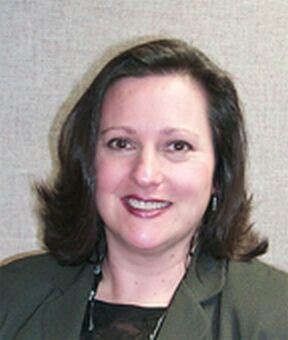
Publisher:
Bonnie King
CONTACT:
Newsroom@Salem-news.com
Advertising:
Adsales@Salem-news.com

~Truth~
~Justice~
~Peace~
TJP
Sep-27-2006 11:16

 TweetFollow @OregonNews
TweetFollow @OregonNews
Big Changes Coming to Oregon Addiction Treatment
Guest Opinion by Karen WheelerThis guest opinion is by Karen Wheeler, addictions policy manager in the Oregon Department of Human Services.
 Karen Wheeler Photo: ORegon DHS |
(SALEM) - If you've never been addicted, this may surprise you: Getting into treatment for an alcohol, drug or gambling addiction is often a frightening experience.
You're afraid of change, scared to live without your habit, questioning whether you deserve success because people have beaten you down about your failings.
Not only that, but people also often get into treatment as a result of a crisis -- a brush with the law, loss of children to state custody or an ultimatum from a boss or spouse.
Nobody can make treatment easy, but Oregon is going to make it a better experience.
I remember the story of a homeless heroin addict. She wound up in the hospital after being hit by a Mack truck while wandering on a highway shoulder. With dozens of broken bones, it was a miracle she even survived.
The last time I saw this woman, though, she was in recovery from her addiction and enrolled in a master's program on an Oregon university campus.
What changed? For the first time in years, someone -- it was her parole officer -- told her she was a worthwhile person.
It's the same message people fighting addictions need to hear when they're in treatment. This is what we're telling Oregon Department of Human Services staff, writing into contracts with state-financed treatment providers and reporting to the Governor's Council on Alcohol and Drug Abuse Programs.
Science tells us addiction is a disease, yet addicts trying to get well may be treated more negatively than the chronically ill person with heart disease, diabetes or cancer.
An addict who relapses while in treatment -- say, an individual uses alcohol or drugs while on a pass -- is often discharged from the program. But that is like denying treatment to the cancer patient who misses a chemo appointment or the diabetic who eats a forbidden box of doughnuts.
We are telling state-financed treatment providers to stress people's strengths and resilience, not their symptoms and illness. You talk to a cancer patient about hope for recovery; we should be talking to addicts that way, too. Regardless of the disease, we believe giving people hope supports wellness.
Recovery is an issue of not only personal quality of life, but also reduced medical, judicial and other expense to the public.
To be successful, treatment shouldn't be treated solely as a medical episode. It should be supported by families who are engaged, by peer-to-peer counseling, by alcohol- and drug-free housing and by other continuing supports that promote recovery.
People who want to get into treatment and recovery or who want to help a loved one should keep these two phone numbers handy:
Oregon Partnership: 1-800-923-4357 to learn about alcohol and other drug treatment. Or call your local county mental health office (see the government pages of your phone book) for details.
Gambling helpline: 1-877-278-6766 for information about free, Lottery-financed treatment.
If you qualify based on income (such as enrollment in the Oregon Health Plan or food stamps), alcohol and other drug treatment is free. If not, the cost will be based on a sliding scale.
No matter how long you have been addicted, we believe you have strengths to overcome your disease. We believe in your recovery.
Contact Info: Karen Wheeler is addictions policy manager in the Oregon Department of Human Services. She can be contacted at Karen.wheeler@state.or.us
Articles for September 26, 2006 | Articles for September 27, 2006 | Articles for September 28, 2006

googlec507860f6901db00.html
Salem-News.com:



Terms of Service | Privacy Policy
All comments and messages are approved by people and self promotional links or unacceptable comments are denied.
Anonymous September 27, 2006 4:51 pm (Pacific time)
Finally, some serious thought is being given about this. At one time, someone I know needed help for his drug addiction and because he did not have health insurance he could not get the long-term treatment he so desperately needed. Consequently, after the "quickie" treatment he was given, he lapsed back in to his addiction and nearly died from an overdose. He is still doing battle with it.
[Return to Top]©2025 Salem-News.com. All opinions expressed in this article are those of the author and do not necessarily reflect those of Salem-News.com.